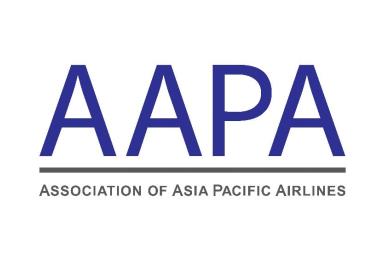KUALA LUMPUR, 4 June 2021: International passengers demand remains in the doldrums, according to preliminary traffic figures released earlier this week by the Association of Asia Pacific Airlines (AAPA).
The association confirmed that passenger demand for its member airlines in the Asia-Pacific had suffered depressed volumes seen since April 2020.

The ongoing Covid-19 pandemic and surges in transmission across many Asian economies have resulted in renewed border control restrictions as well as domestic lockdowns, quelling hopes of any meaningful resumption in international travel markets.
Asia Pacific airlines carried 1.1 million international passengers in April, which represented a small improvement over the same period in 2020 when international passenger volumes plunged during the first wave of the Covid-19 pandemic. But the real comparison with 2019 (pre-Covid-19 times) shows the April 2021 performance was just 3.5% of passenger volumes recorded in the same month of 2019. Available seat capacity was only 4% of levels registered in 2019, with the international passenger load factor averaging 26.4% for the month.
Meanwhile, countries that have begun vaccination rollouts continued to benefit from a revival in their domestic economies, which in turn fuelled demand for goods. Accordingly, the acceleration in global trade activity continued to benefit the region’s carriers, which saw air cargo demand in international freight tonne-kilometres (FTK) grow by 42% year-on-year in April, achieving volumes slightly above the same period in 2019. Offered freight capacity rose by 29.4% year-on-year, resulting in a 6.7 percentage point increase in the average international freight load factor to 74.8% for the month.
Commenting on the results, AAPA director general Subhas Menon said: “The emergence of different variants with higher transmissibility rates has deterred Asian economies from reopening their borders, with extended quarantine requirements further suppressing international travel demand.
“Bilateral travel corridors offer hope for a recovery, yet remain susceptible to disruptions, as evidenced by the second postponement of the Singapore-Hong Kong travel bubble, reflecting the extremely challenging operating conditions faced by airlines.”
He noted that in Asia, the relatively slow pace of vaccinations continues to undermine the region’s economic recovery, in particular, the travel and tourism sectors, which have been badly hit. Accelerating vaccination rollouts would be key to paving the way for the restart of the travel industry. However, governments are still facing numerous challenges, including supply constraints and logistical issues.
Menon concluded, “As Covid-19 becomes endemic in society and borders progressively reopen, the collaboration of multiple stakeholders such as governments, airlines, airports and service providers, as well as the implementation of harmonised risk-based measures in accordance with ICAO and WHO guidelines, will be needed to restart international air travel in a smart, safe and sustainable way.”
(Source: News AAPA)






